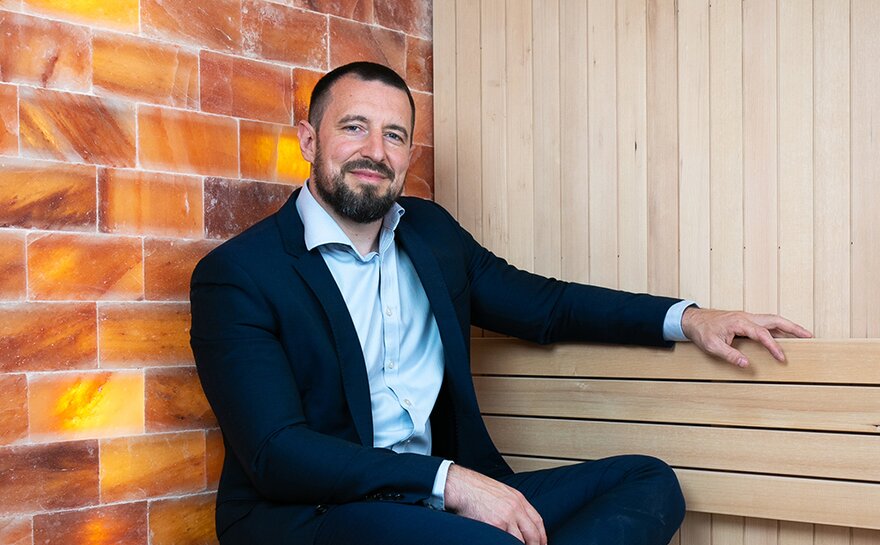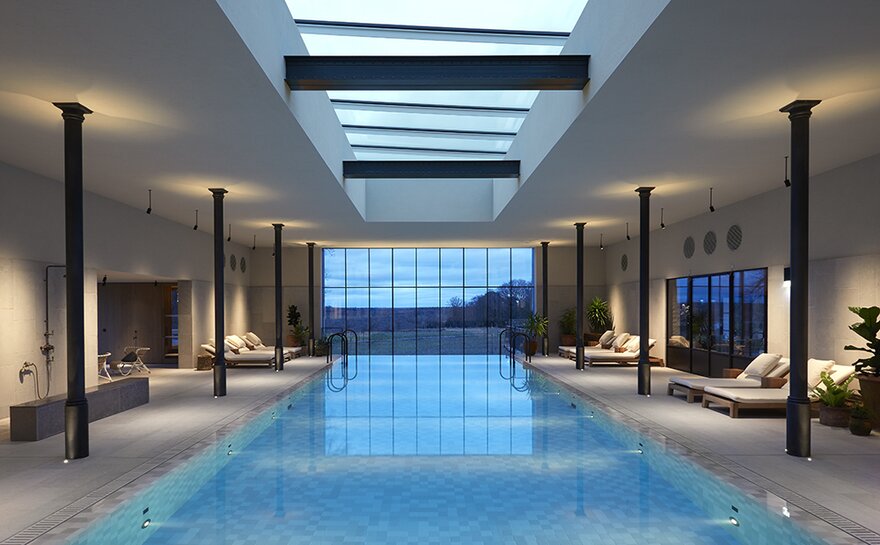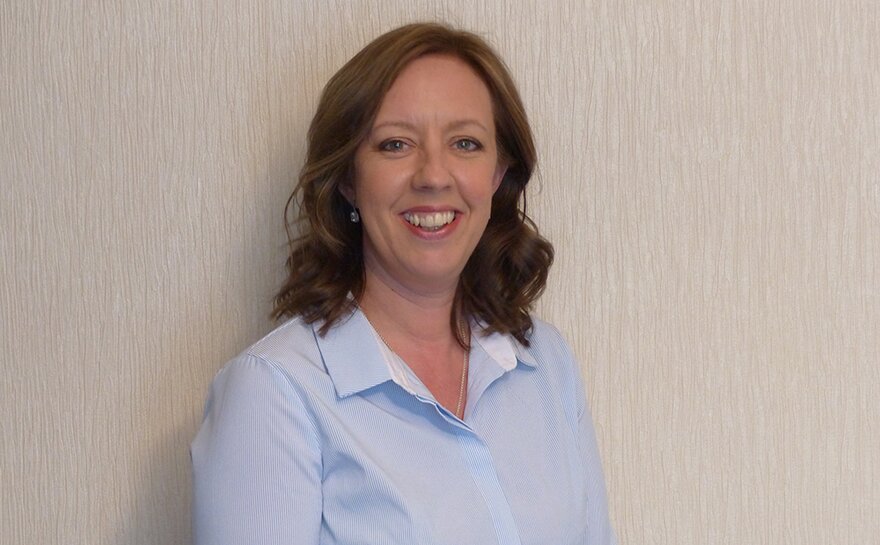The spa revenue stream is booming and hotels are offering ever more creative ways for guests to de-stress. Here are the big players in relaxation
From an afternoon tea and facial to a couple's romantic weekend with massage for two, spas have always been a standard offering for hotels. While for some they are a ‘nice to have', done properly, spas can provide a healthy revenue stream.
According to Finlay Anderson, group leisure and spa director at IHG Hotels & Resorts, spa guests can generate up to 20% morerevenue for a hotel than non-spa guests. And that certainly rings true at Rockliffe Hall in Darlington, County Durham, where increased options to upsell, such as adding on an extra treatments or encouraging visitors to buy products, are utilised.
In the year to June 2023, its spa generated £3.1m in revenue, an increase from £2.6m the previous year when Covid had a greater impact. This represents a 36% increase on pre-Covid sales and a contribution of around 25% of the total resort revenue.
Similarly, the spa at Cotswold hotel Calcot & Spa in Tetbury, generates an additional £30,000 a month for the hotel, with 30% of this revenue coming from hotel guests. What guests are looking for has changed significantly since the pandemic. And if hotels get it right, the opportunities to please and encourage repeat custom are financially, and reputationally, vast.
How to get hotel spas right
So, what does ‘getting it right' look like? Anderson, who won the Spa Professional of the Year 2022 award at the Hotel Cateys, says spas are no longer there just as a place to "meet with friends, have tea, use the swimming pool and then have some drinks afterwards", but cater for "360° wellness".
This shift, says Francesca Rowland, spa director at Calcot & Spa, came as a result of Covid, noting that pre-pandemic, "we considered wellbeing as a bit of a luxury", but that now we are "so much more in touch with our health". As such, Rowland adds: "Wellbeing is a way of life for everybody."
Katherine Pye, general manager of Wildsmith Skin at Heckfield Place's wellness centre the Bothy, has also seen a shift: "Long gone are the days of an alcohol-fuelled gourmet dinner, maybe a spa treatment and a round of golf. Now we are taking a more modern approach, of looking after yourself and really thinking about what you might do to improve wellbeing."
Anderson notes that, thanks to social media, customers are becoming more educated in what they are looking for from treatments and are "less passive and more active". In response, spas are offering more personalised and holistic experiences with detailed consultations and longer treatments, as well as an increased use of nature in treatments, and technology.
Number of spa appointments per day
At Galgorm in Ballymena in Northern Ireland, spa director Tara Moore and her team have reduced the maximum number of spa appointments from eight to five per day, meaning clients feel cared for and staff are less rushed. What used to be a 55-minute treatment with a five-minute turnaround has now turned into treatments lasting up to 90 minutes with an additional 15 minutes to check in on the client.
That sense of connecting with the guest and slowing down time is something the Bothy, which opened in April, is also practising. Pye says the wellness retreat's signature treatment, Wildsmith Time, lasts for more than two hours and she encourages guests to stay in the Bothy for four hours to fully immerse themselves in the experience, so much so that there is an absence of clocks to allow the guests to "really disconnect".
To keep the feeling of both space and intimacy, Pye has a limit of 35 guests at one time, allowing spa staff to tend their needs, enhancing the feeling of personal service.
Using nature in spas
How hotels can bring the outdoors to the spa is a question that Anderson is currently contending with on a weekly, if not daily, basis. "As we move to become more and more of an urban society, that connection with nature is very grounding," he says.
Spa specialists SpaSeekers reported in its 2023 Spa Trends Report searches for ‘natural spas', such as mineral spring and thermal spas, are up by 126% and 124%, respectively.
Spas directors are taking note and are increasingly incorporating the natural world into their treatments. Take the Galgorm's thermal village, 90% of which is outside following a £2m expansion in 2020. Perched along the River Maine, local stone, natural wood and colours inspired by woodland flora combine to create a space for biophiles.
While Pye and her team at Heckfield encourage guests to use the Waters, a chlorine-free indoor bathing area overlooking Hampshire's woodland and pastureland, if guests want an even wilder experience, the hotel offers a guided cold water immersion experience in its lower lake. Cold water immersion, encouraged by the likes of extreme Dutch athlete Wim Hof, has entered the mainstream with more than 500 million views of #coldplunge on TikTok, demonstrating its appeal to a younger audience.
Those hotels without the luxury of nature on their doorstep are keen not to be left behind. At the Kimpton Charlotte Square hotel in the centre of Edinburgh, one of the suites will have a projected image of Scotland's Hebrides in the shower coupled with sound therapy to mimic the natural world.
Entering the digital spa age
The use of technology, like sound therapy, is a huge growth area and can be a great asset for spas, says spa consultant Nicki Kurran (see panel). She believes technology can also help solve the issue of staffing problems and skills gaps, with Anderson pointing out that spas were suffering a "20% skills gap pre-Covid", a situation that has since worsened.
While technology can bridge the skills gap, it can also be an attractive proposition for the wellbeing savvy Gen Z, says Moore. With their demand for wellness, coupled with their advanced digital know-how, adding technology to the spa offering can attract a younger crowd. Moore, who's worked at Galgorm for 11 years and been head of operations since 2019, is seeing more young people, particularly men, use the spa.
This is a demographic that Alexandru Mosnegutu at London's Hotel Café Royal is keen to attract. After the pandemic, the hotel's owner, the Set Collection rebranded itself as a lifestyle and wellness brand to capitalise on the burgeoning wellness movement. Mosnegutu, the group Akasha director at the Set Collection, concedes that the central hotel's spa technology offering is "not very big at the moment", but, since his arrival at the start of the year, he is exploring several ways to incorporate more.
The hotel is in the process of working with a technology partner and has already hired a spiritual mentor and guide, Belinda Matwali. Matwali, who has collaborated with boutique lifestyle hotel the Mandrake in Mayfair, London, and plant-based wellness company Deliciously Ella, uses electronic music meditation combined with deep breathing to help de-stress clients, followed by guided meditation with meditative music to enhance sleep.
While for millennia, people have associated waters with healing – indeed, the very word ‘spa' is an acronym for sanitas per aquam, meaning health through water – spas and wellness centres are having to look beyond the water to attract guests. Because, as Anderson points out, with so many hotels all trying to offer guests a memorable spa visit, there is stiff competition for hotels to offer the heightened level of personal service and up-to-date products and offerings.
"Spas have come into their own in recent years and they've now so important to the hospitality and hotel industry," he concludes. Prior to the pandemic, "it was all about food and beverage", but now, if a hotel doesn't showcase its spa and wellness facilities, "you're going to struggle against your competitor set".
Vibrating loungers and soundscapes: wellness goes high-tech
Technology in spas is becoming more prolific, says spa consultant Nicki Kurran. One of her go-to spa technology companies is the Gharieni Group, which, she says, creates "fantastic technology" with "scientifically proven" benefits.
While technology can be used independently, Kurran encourages her clients to combine touch with technology as the two can "complement and enhance" one another. "Technology can really slow down the mind and body and can be a benefit pre- and post-treatment," she adds. She takes the example of wellness loungers (see below) which can relax a client before a massage, or allow them to enjoy the effects of treatment for longer by "not bringing them back to reality too quickly".
Kurran's top three products from Gharieni Group are:
RLX Aurasens A wellness lounger offering users an immersive sensory experience, blending sound and vibration to emulate the four natural elements. The water programme is recommended for those seeking deep relaxation, or fire is supposed to aid with muscle tension. The lounger is controlled by an iPad and guests can select a programme of their choice and opt for music to complement their chosen treatment,
RLX Santori A wellness lounger designed to improve physical and mental wellbeing. It offers full-body vibration combined with music and a guided meditation experience, with the aim of easing the guests into a state of relaxation and mindfulness.
MLX i3 Dome A detoxifying hands-free therapy dome that combines Far Infrared (FIR) technology with plasma and light therapies designed to revitalise skin, increase collagen production, boost metabolism and relieve physical discomfort.
Wellness in the city
Over the course of 22 years, Samantha Trinder has transformed the Bingham Riverhouse on the banks of the river Thames in Richmond "from a bad three-star B&B" to a 15-bedroom hotel focused on rest, wellness and socialising.
As the owner of the Bingham, Trinder's passion is around stress management, but, as a small city hotel where space is at a premium, offering guests a traditional spa experience isn't an option, so she spends her time focusing on products and people that she believes can help alleviate guests' stress and enhance their wellness.
Where some hotels might place a chocolate on a guest's pillow as part of turn-down service, Trinder introduced Oto CBD sleep drops in July 2020. A small vial is placed next to the beds, and guests are instructed to place a drop or two under their tongue, if they so wish. Most guests use the drops, with 5% purchasing the Oto CBD sleep set (face mask, pillow mist and CBD oil) after their stay.
Trinder also placed crystals in bedrooms, provided by energy healer and mentor Delilah Sullivan. She uses agate, which is associated with harmonising and rebalancing the mind and body, and fluorite, which claims to absorb and neutralise negative energy and stress. Similarly, to the CBD oil, Trinder says that around 5% of guests have taken these from the bedrooms which, she notes, while is a small number, is evidence enough that "people are drawn to them".
Trinder also takes wellness inspiration from the seasons, hosting events during the winter and summer solstice, and the spring and autumn equinox. "These are pivotal times in the calendar, and the Earth's energetic calendar", she says, explaining how a spiritual leader will guide the group through meditation and mindfulness and combine it with music.
She is aware that "not everyone is on that path" but 100 people participated in the first event on the summer solstice in June 2021. She now has between 60 and 100 people attending these celebrations, demonstrating the appetite for such experiences.
Continue reading
You need to be a premium member to view this. Subscribe from just 99p per week.
Already subscribed? Log In












